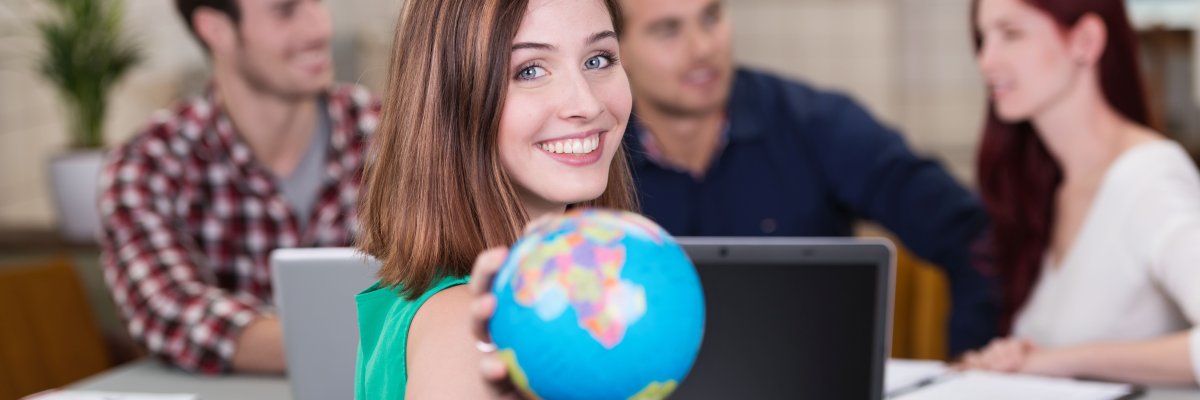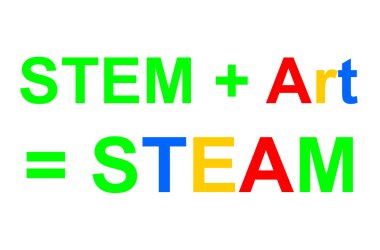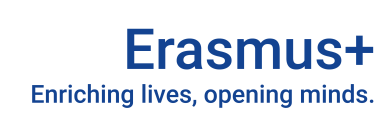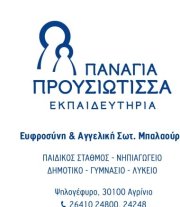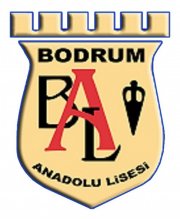STEM + Art = STEAM
A new project from digi_space.
Kreis Bergstrasse is coordinator of the 2023 ERASMUS+ small-scale partnership:
"STEM+Art = STEAM - A new creative approch to IT".
Natural sciences and art? What do they have to do with each other? What are the social implications of new technological developments, what are the moral implications? And what professional and career options does this unusual field offer? Students participating in the ERASMUS+ project "STEM+Art = STEAM" will deal with these and similar questions. In this project, digi_space is cooperating with schools from Greece and Turkey. In addition to the thematic discussion about art and natural sciences, the project focuses on promoting the digital skills of the participating students and critically addressing environmental issues.

Project Goals
STEM + Art = STEAM - A new creative approach to IT.
The project aims to advance STEM+Art = STEAM education.
Usually, STEM subjects are perceived as clearly structured and causal by students, the area of creativity and free design is rather attributed to the area of art. However, the two areas are mutually dependent: for example, art requires materials and uses their natural phenomena, which can be explained by science. The STEM field, for example, requires the design of objects and creativity in the development of new technologies.
Within the framework of the small-scale partnership, we are developing new approaches, workshops and course curricula for school use with the cooperation partners from Greece and Turkey in order to promote the interest and skills of students in and in the subject area STEM+Art = STEAM.
For this, the project relies on the concept of experiential learning activities. Among other things, students will:
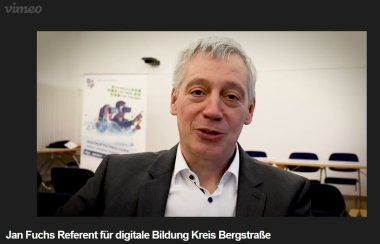
- learn to integrate art and technology by using tools such as 3D printers, microcomputers, and digital art software.
- Address the social implications of scientific ideas and theories, the moral implications of scientific research, and public relations for science.
- learn about the principles of engineering, the latest technological innovations such as AI, and agile methods such as design thinking to develop and test ideas in sustainable technologies, renewable energy sources, or waste management.
The thematic work will be complemented by a virtual workshop on career paths in the STEM+Art = STEAM - field. This will give the students insights into various professions and the skills and training required for them. The workshop will also test the possibilities of virtual job shadowing.
First transnational workshop
Young people bring art and technology together February 2024, Heppenheim, Germany
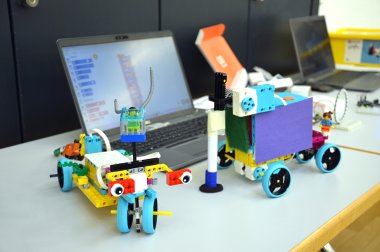
Pupils from Germany, Greece and Turkey experimented at the Erasmus+ workshop as part of the district's digi_space program
Bergstrasse district (kb). Art and technology - how do they go together? 24 pupils from the Bergstrasse district, Agrinio (Greece) and Bodrum (Turkey) recently discussed, experimented and tinkered with this question in a week-long workshop. They not only learned a lot about 3D design, artificial intelligence, robotics and programming, but also about the culture and life in the other countries. The workshop entitled "STEM + Art = STEAM" was organized by digi_space of the Bergstraße district and funded by the Erasmus+ project of the European Union.
Trailer STEM + Art = STEAM
The young people aged between 14 and 18 worked on their own projects - for example with Lego Robotics - under the guidance of Jan Fuchs, digital education officer at the district. They were able to try out 3D printers, microcomputers and software for digital art. There were also joint excursions and trips, such as to TU Darmstadt, Starkenburg in Heppenheim or the Center for Art and Media in Karlsruhe. They presented their joint projects to the public at a final event in Lorsch.
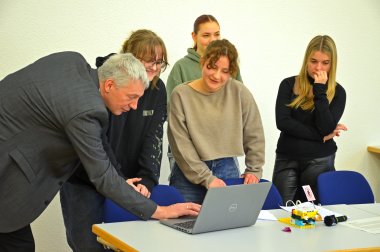
"Dealing with technology and experimenting with it independently is a central aspect of our digi_space research workshop. I am very pleased that this is being combined with international exchange and thinking beyond thematic barriers as part of the Erasmus+ project. After all, as a country with few raw materials, we urgently need today's young people to use their technological knowledge and creativity to drive innovation in the future," says District Administrator Christian Engelhardt.
The "STEAM" workshop will initially continue as an online event in March, followed by a return visit by the young Germans and Turks to Greece in April. After another online workshop in May, the final visit to Turkey is scheduled for September. The twelve students from the Bergstrasse district came from Martin-Luther-Schule Rimbach, Lessing-Gymnasium Lampertheim, Starkenburg-Gymnasium Heppenheim, Litauisches Gymnasium Lampertheim, Liebfrauenschule Bensheim and Goethe-Gymnasium Bensheim.
Second transnational workshop
Exploring the Nexus of Science and Society: Erasmus+ STEM + Art = STEAM Workshop in Agrinio
Agrinio, April 22, 2024 - The intersection of science, technology, and societal impact takes center stage this week as Agrinio plays host to the "Science and Society" workshop under the auspices of the Erasmus+ STEM + Art = STEAM initiative. Bringing together educators, students, and experts from across Europe, this immersive workshop promises a week of collaborative learning, hands-on activities, and community engagement.
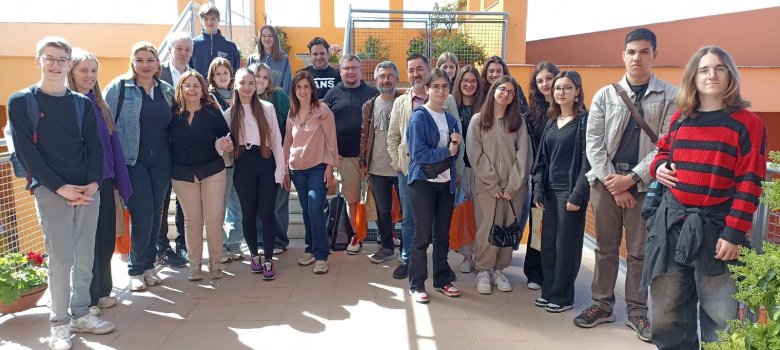
Monday: Building Connections and Creativity
The week kicked off with an enthusiastic gathering of participants eager to embark on their journey of exploration. After introductions and an overview of the week's agenda, participants engaged in team-building activities to foster camaraderie and collaboration. The highlight of the day was a hands-on session on video production using OpenCut software, laying the groundwork for creative multimedia projects to come.
Tuesday: A Day of Exploration
Tuesday saw participants venture beyond the workshop venue for a firsthand look at innovation in action. A visit to a local company specializing in content creation and 3D printing provided insights into cutting-edge technologies shaping our world. Later, participants embarked on an environmental photography excursion to a picturesque local lake, capturing the beauty of nature while reflecting on the impact of human activity on the environment.

Wednesday: Bridging Academia and Industry
Midweek brought a blend of academia and industry as participants visited the Electrical and Computer Engineering Department at the University of Peloponnese in Patras. Exploring the ambient living apartment showcased innovative technologies aimed at enhancing quality of life, sparking discussions on the intersection of technology and societal needs. A tour of the vibrant city of Patras provided a cultural immersion experience, further enriching participants' understanding of the local context.
Thursday: Artistic Expression Meets Science
Thursday's agenda shifted focus to artistic expression, with a workshop centered on phototransfer projects. Participants transformed the images captured during Tuesday's excursion into creative works of art, bridging the gap between science and aesthetics. The day culminated in a festive farewell dinner, celebrating newfound friendships and shared experiences.

Friday: Showcasing Innovation
The workshop drew to a close on Friday with participants putting the finishing touches on their projects and preparing for the final presentation. With peers and invited guests in attendance, participants showcased their collaborative endeavors, highlighting the fusion of scientific inquiry with societal relevance. From multimedia presentations to hands-on demonstrations, each project reflected the participants' passion for driving positive change through innovation.
As the workshop concluded, participants departed with a renewed sense of purpose and a commitment to continue exploring the dynamic interplay between science and society. The "Science and Society" workshop exemplified the transformative potential of interdisciplinary collaboration, paving the way for future endeavors to harness the power of STEM and art in addressing the pressing challenges of our time.
Third transnational workshop
Exploring the complex connection of Environment and Technology: Erasmus+ STEM + Art = STEAM Workshop in Bodrum
The culmination of the third transnational workshop took place throughout the span of five dynamic days end of September 2024 in Bodurm, Türkiye. Eeach filled with engaging activities and informative sessions aimed at fostering a deeper understanding of the intricate relationship between the environment and technology.
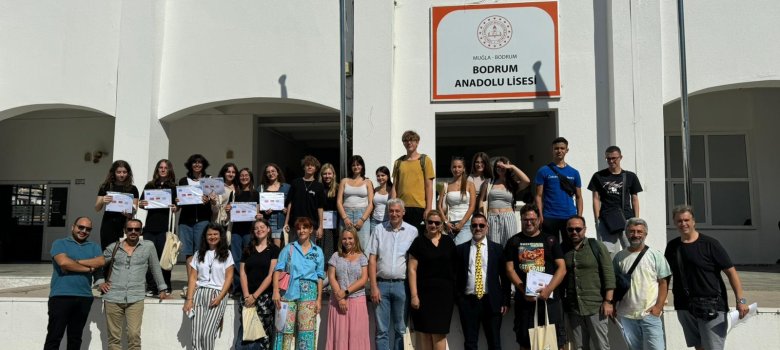
The workshop commenced on Monday with an emphasis on building camaraderie amongst the students through ice breaking activities, followed by insightful presentations by students from the three participating countries on the topic of environment and technology relations. The day proceeded with a technical demonstration of the PICTO BLOX program in the computer laboratory, where the students were taught the fundamental logic of the program by their teachers.

Tuesday was dedicated to further exploration and learning, with continued PICTO BLOX training and a visit to the district National Education Directorate to exchange information on the education systems of the participating countries.

Wednesday saw a harmonious integration of art and technology, as students engaged in an art activity utilizing natural materials found on the seashore. The afternoon was marked by a visit to Bodrum Castle, a prominent tourism hub in the district, and the submarine museum.

Thursday featured a visit to a technology company specializing in biological waste management, providing students with valuable insights into the symbiotic relationship between technology and the environment. The afternoon culminated in a final presentation showcasing the products created throughout the week, with certificates being presented to the participating students and teachers.

The workshop concluded on Friday with an environmental observation boat tour, granting students a firsthand experience of the pristine natural beauty of Bodrum and its surrounding bays. This immersive excursion underscored the significance of preserving untouched areas and highlighted the vital role technology can play in environmental conservation efforts. Through a blend of education, exploration, and creativity, the third transnational workshop proved to be a transformative and enlightening experience for all involved.
New teaching material, ressources and reports
Overall, the new teaching material, ressources and reports of the STEM+Art = STEAM project offers a unique and innovative approach to integrating creativity, technology, and science. By combining these different disciplines, students will not only enhance their technical skills but also develop their creative thinking and problem-solving abilities. Through hands-on activities, workshops, and virtual experiences, students will be able to see the real-world applications of STEM and art in various fields and gain a better understanding of the interconnectedness of these subjects. This project aims to inspire and motivate students to pursue careers in STEM and art, and to become the innovators and creators of the future.
The new teaching material and resources is available for free download on this website.
Co-Founded by EU-Program ERASMUS+

The project "STEM + Art = STEAM" belongs to the program part "Erasmus+: smale-scale partnerships" and is funded by the programm KA210.
General objective
The general objective of the Programme is to support, through lifelong learning, the educational, professional and personal development of people in education, training, youth and sport, in Europe and beyond, thereby contributing to sustainable growth, quality jobs and social cohesion, to driving innovation, and to strengthening European identity and active citizenship. As such, the Programme shall be a key instrument for building a European Education Area, supporting the implementation of the European strategic cooperation in the field of education and training, with its underlying sectoral agendas. In addition, it is key in advancing youth policy cooperation under the European Union Youth Strategy 2019-2027 and developing the European dimension in sport.
Specific objectives
The Programme has the following specific objectives:
- promote learning mobility of individuals and groups, as well as cooperation, quality, inclusion and equity, excellence, creativity and innovation at the level of organisations and policies in the field of education and training;
- promote non-formal and informal learning mobility and active participation among young people, as well as cooperation, quality, inclusion, creativity and innovation at the level of organisations and policies in the field of youth;
- promote learning mobility of sport staff, as well as cooperation, quality, inclusion, creativity and innovation at the level of sport organisations and sport policies.
More information: German NA: Schulbildung - Erasmus+ (erasmusplus.de)
Project data
Project number:
Project duration: III/2023 to IV/2024
Funding volume: 60,000 €
Disclaimer
Funded by the European Union. Views and opinions expressed are however those of the author(s) only and do not necessarily reflect those of the European Union or the European Education and Culture Executive Agency (EACEA). Neither the European Union nor EACEA can be held responsible for them.
